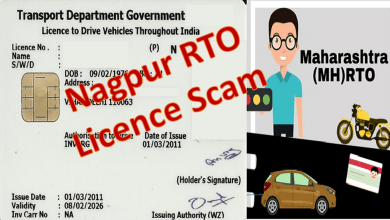INTRODUCTION
The general rule is that, by Res Judicata, parties cannot re-litigate a matter once decided upon. But to begin with, it applied only to writ petitions relating to constitutional rights, particularly when such rights were in jeopardy. The Supreme Court held in the instant decision that Res Judicata would prevent a later petition on the same issue under Article 32 before the Supreme Court if a writ petition filed under Article 226 before the High Court is rejected. This decision further strengthens the principle that arguments which have been rejected by the High Court cannot be pursued before the Supreme Court unless the earlier judgment is varied, set aside, or specifically approved by the Supreme Court.
Res Judicata holds the case not to be tried again if it is established conclusively. The ancestor of the petitioners, in this case, leased a plot in Uttar Pradesh which established tenancy rights and ownership rights. When communal violence broke out in 1947, petitioners fled the region. On their return, the respondents were found holding onto their land. Long-time ownership was claimed by respondents without any valid title. Civil suit was filed by petitioners in 1948 in U.P. Tenancy Act, 1939, and emerged victorious. However, the respondents appealed to the Board of Revenue which set aside the judgment in 1954 on the ground that amendments had been introduced in the U.P. Zamindari Abolition and Land Reforms Act. Then they filed a writ of certiorari to the Allahabad High Court, and that was dismissed in 1955. They further appealed to the Supreme Court under Article 32 but Res Judicata barred the case as already decided.
CONTENTIONS
He submits that the doctrine of *res judicata* should not curtail the defense of Fundamental Rights since Article 32(1) grants a direct right of access to the Supreme Court for the protection of the rights. According to him, Article 32 proceedings are case-specific and not proceduralistic in nature; hence they should not be circumscribed by procedural restrictions. It is possible to appeal under Article 136 if the High Court dismisses the petition. Punjab’s Advocate General countered that Article 32 does not grant an absolute right for original petitions before the Supreme Court, relief remaining within the discretion of the Court, and the principle of *res judicata* precludes re-litigation of decrees of the High Courts.
DECISION
The Supreme Court dismissed the writ of the petitioner filed under Article 32. The two High Court petitions were held to raise the same statute and the same arguments. As such, the earlier decision of the High Court in the case of the petitioner bars its re-litigation under Article 32, cost ordered against each party. The Court relied on principles of previous judgments that once a competent court has decided on a matter, it cannot be revisited. In Laxmanappa Hanumantappa Jamkhandi v. Union of India, the Court held that Article 32 merely enforces fundamental rights but does not enforce tax-related provisions of Article 265. Chief Justice Mahajan also made a point of judicial discretion, arguing that not all legal matters require writs. Moreover, Gulab Koer v. Badshah Bahadur reiterated that res judicata includes re-arguing settled issues such as fraud, and any review must be filed through new actions.
ANALYSIS
This judgment has forced important canons of law, namely, the principle of finality of judgments and res judicata to writ petitions. Here, it holds that where the High Court delivers judgment on an Article 226 petition, Article 32 petitions by the same parties cannot follow; in consequence, this would check repetitions of litigation and also go to save judicial time. The Court thereby circumscribed “forum shopping.” Parties would no longer beat negative rulings merely by resort to tactical legal loopholes but preserve the sanctity of the system. It also cleared confusion between Articles 226 and 32 and held that Article 32 does not provide appeal from the decision of a High Court, thus preventing waste of judicial resources and expediting new cases.
WEAKNESSES OF THE JUDGMENT
Article 32 is the most vital for direct access to the Supreme Court to enforce fundamental rights. The application of res judicata to Article 32 petitions limits such access, thus weakening the constitutional safeguard and curtailing the jurisdiction of the Supreme Court over the High Courts. The judgment is not clear on the exceptions to res judicata in writs, which would create future uncertainty. Concurring and dissenting opinions would have added strength to the legal framework.
SUGGESTIONS/RECOMMENDATIONS
With this judgment, certain critical issues need to be addressed towards better judgment: The judgment is ambiguous about cost apportionment for frivolous petitions; clearer standards would make the process more predictable and reduce arbitrary legal fees. On change of strategy, the court did not comment on this in the petition, but it is along such guidance that valid change in conduct would be determinative of maintaining procedural integrity. Lastly, there should be a mechanism providing for reopening cases based upon new evidence or theories allowing finality.
CONCLUSION
Daryao & Others v. State of UP: The Indian Supreme Court entertained a case regarding the interplay between Res Judicata and Articles 32 and 226 of the Indian Constitution. This is basically a case of whether or not the writ petition presented by the High Court was admissible before the Supreme Court. The Court held that matters once settled by a High Court cannot be relitigated under Article 32 and reinforced the doctrine of Res Judicata, thereby upholding judicial economy and finality in lawsuits but raises questions regarding its potential denial of access to justice for valid claims raised due to flaws in such earlier hearings. Jurisprudence in the future should further clarify exceptions towards keeping justice effective.




